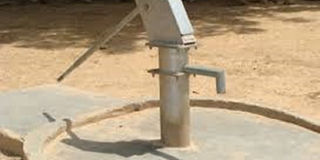Councillors approve Sh10m for boreholes

What you need to know:
- Following their decision, the water department has already directed leaders of the community, which will benefit from the project to go and visit its offices and collect water treatment drugs.
Ulanga. Councillors of Ulanga District Council in Morogoro Region have unanimously agreed on the recommendation of spending Sh10 million for drilling boreholes in two wards, a move which promises to be a solution to water problems.
Following their decision, the water department has already directed leaders of the community, which will benefit from the project to go and visit its offices and collect water treatment drugs.
Speaking during a civic council to present a report on implementation of development projects in the district, the chairperson, Mr Furaha Lilongeli, confirmed that the councillors had okayed the spending with a view to ending water woes in the district.
Mr Lilongeli mentioned the wards that would benefit from the project as Ruaha and Chilombora whose residents have been facing an acute shortage of clean and safe water.
“When I presented a request for endorsement of the Sh10 million spending, the councillors supported me. They all know how important boreholes will be in our wards. People will now be assured of safe drinking water and we will continue with this system of addressing water challenges in other wards,” said Mr Lilongeli.
For his part, the Water Engineer of Ulanga District, Mr David Kaijage, said the water department had started countering some challenges including directing the leaders of the community of water consumers to go to their department offices to collect kroline, the drug used to treat water.
“It is true that the residents of Ulanga lack clean and safe water. However, my department has already started addressing some challenges including treating water to avoid outbreak of diseases like typhoid fever and cholera,” said Mr Kaijage.
He said water access in the district stood at 59 per cent, adding that the residents were forced to cover long distances on foot in search of water.




